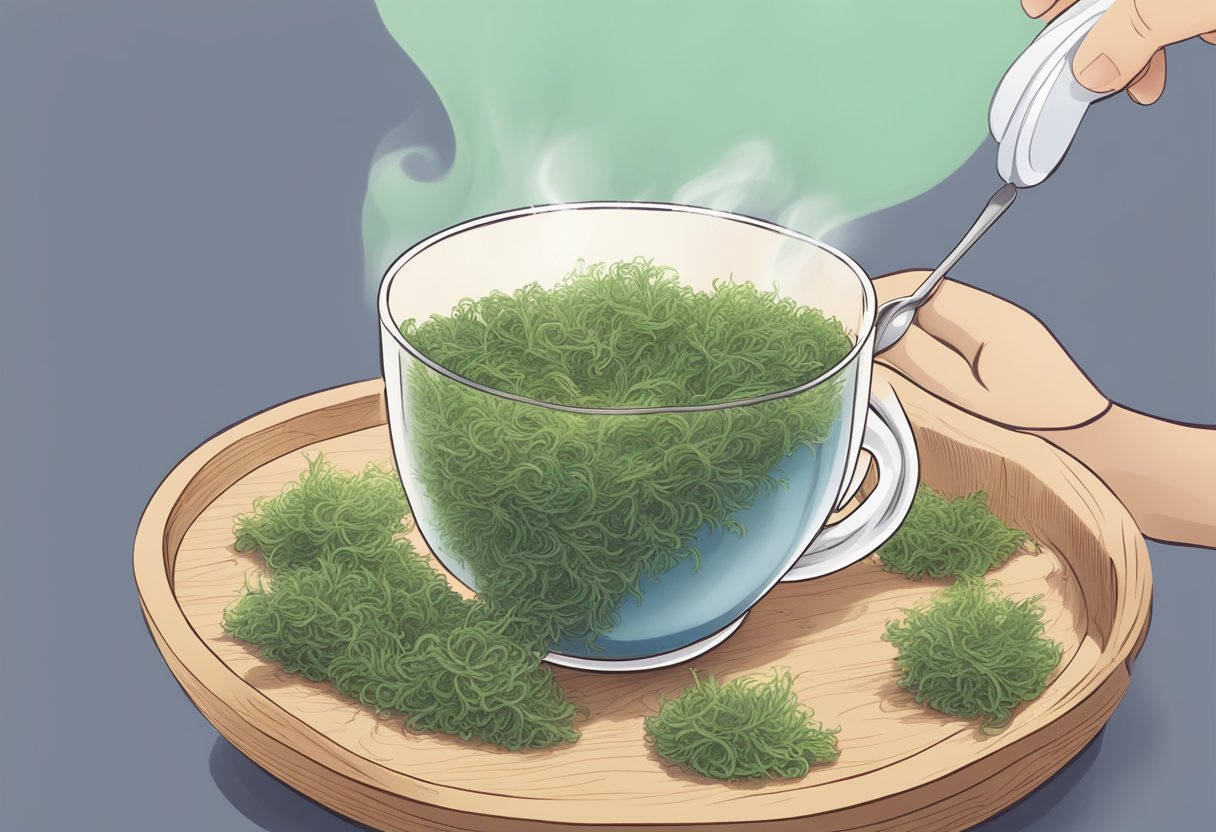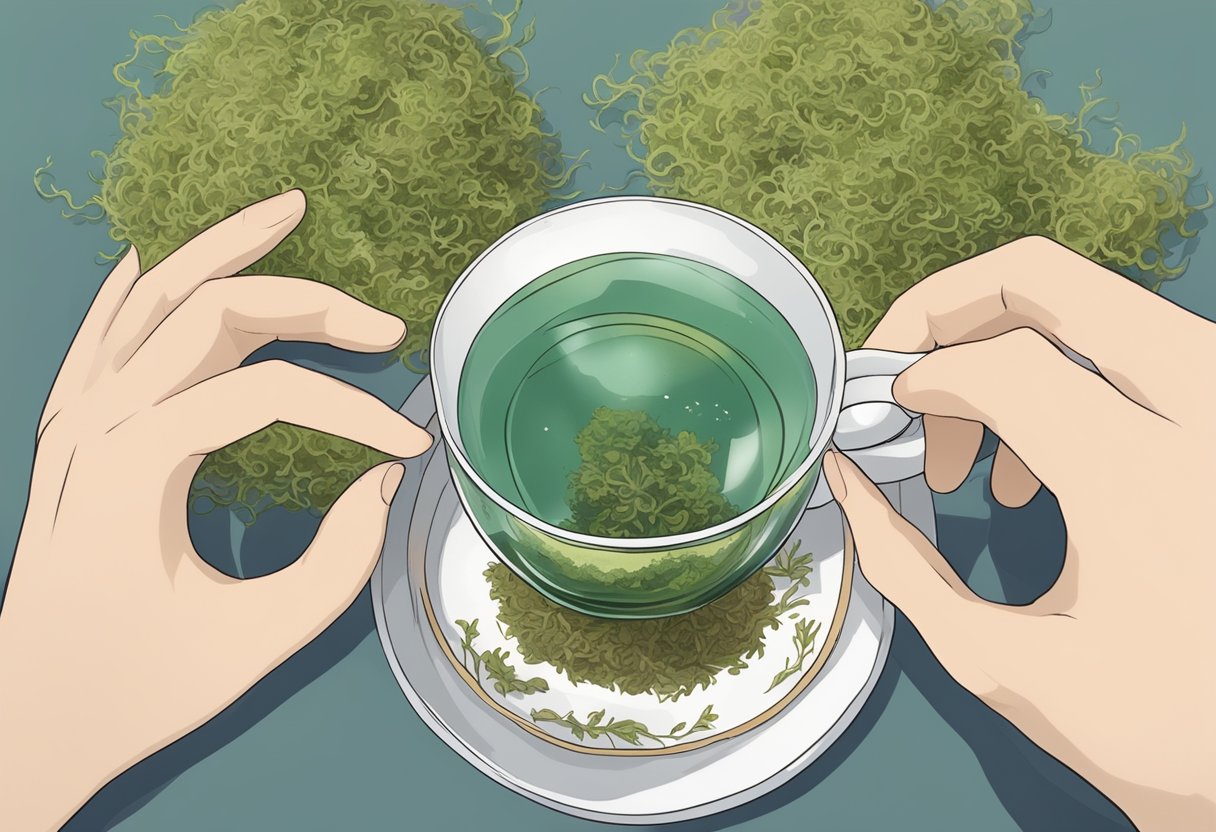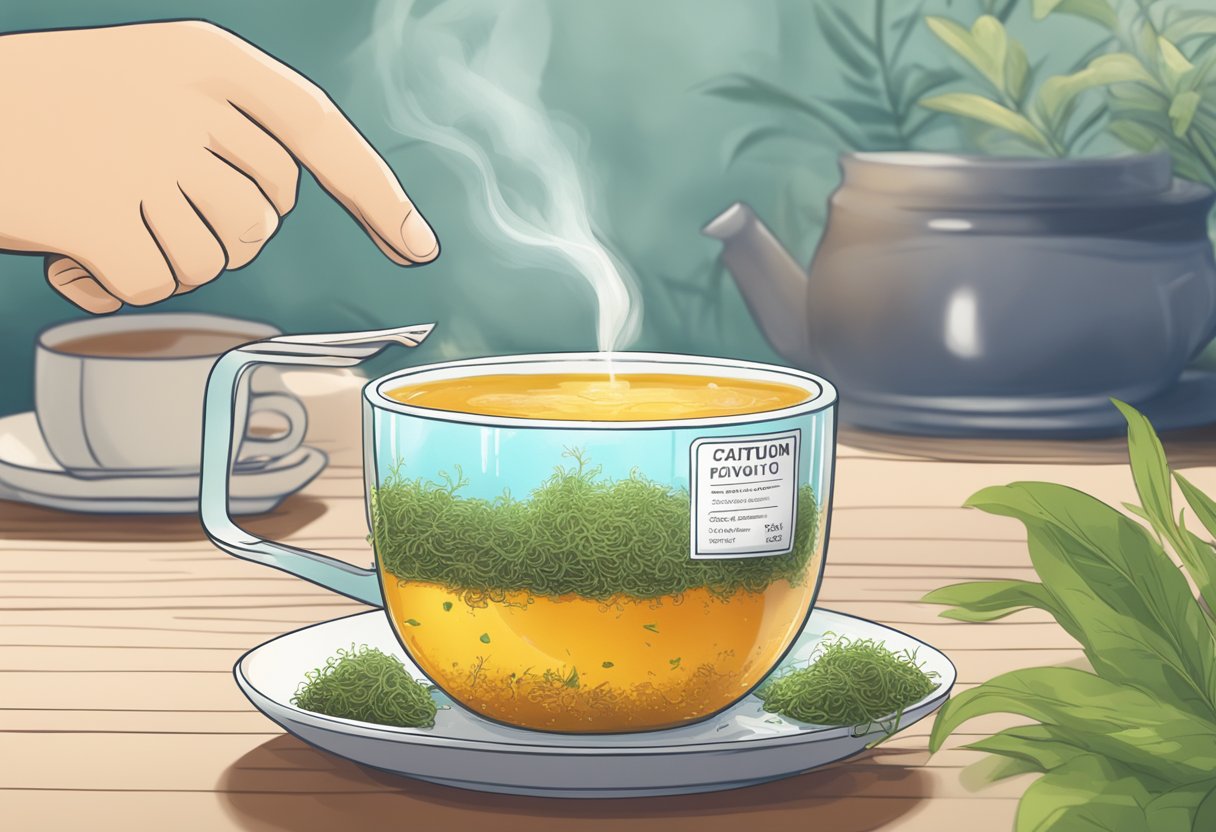Sea moss, an increasingly popular superfood, is a type of red algae rich in minerals and vitamins. Curiosity about integrating sea moss into everyday diets has grown, and one of the simplest methods is through beverages like tea. Sea moss in tea is not only possible; it's also a convenient way to enjoy its health benefits. Adding sea moss to tea can provide a nutrient boost with minimal change to the flavor of your favorite teas.
To incorporate sea moss into tea, it is typically converted into a gel by soaking and blending the dried algae with water. This sea moss gel can then be effortlessly stirred into hot or cold teas. Doing so may support digestion, improve skin health, and contribute to a healthy immune system. While there are clear wellness incentives for adding sea moss to tea, it's also important to consider individual health needs and potential allergens.
Key Takeaways
- Sea moss can be added to tea, offering a simple method to ingest its nutrients.
- Sea moss gel integrates well with tea, contributing to overall health benefits.
- It's important to evaluate personal health conditions before adding sea moss to diet.
Benefits of Sea Moss in Tea

Incorporating sea moss into tea can offer a range of health benefits, from supporting immune function to nourishing the skin.
Boosting Immune Health
Sea moss is rich in vitamins and minerals that are crucial for maintaining a healthy immune system. Drinking tea infused with sea moss can contribute to the daily intake of nutrients like iodine and zinc, which are known to support immune defense mechanisms.
Improving Digestion
The high mucilage content of sea moss may aid in soothing the digestive tract and promoting regularity. When added to hot tea, the gentle fibers and prebiotic compounds found in sea moss help support gut health and digestion.
Skin and Hair Enhancements
Packed with essential minerals and vitamins, sea moss can be beneficial for the skin and hair when consumed in tea form. It is believed to help hydrate skin and enhance hair's natural shine due to its vitamin and mineral content. For those interested in how to incorporate this superfood into their diet, understanding how to make sea moss tea may provide a healthful and enjoyable addition to one's wellness routine.
How to Incorporate Sea Moss into Tea

Incorporating sea moss into tea involves two main steps: preparing the sea moss and then creating a versatile sea moss gel. This gel can then be easily added to hot tea for enhanced nutrition.
Preparing Sea Moss
Before sea moss can be added to tea, it needs to be cleaned and soaked. First, sea moss must be thoroughly washed to remove any debris or sea particles. Often, it comes with salt and sand attached, which need to be rinsed off. After washing, the sea moss should be soaked in fresh water, ideally for about 12-24 hours. The soaking process allows it to expand and soften, which is essential for the next step of making gel.
Sea Moss Gel
Once the sea moss has been prepared, it's ready to be transformed into a gel. This is accomplished by blending the soaked sea moss with water until it reaches a smooth, creamy consistency. The resulting gel can be stored in an airtight container in the refrigerator for up to a few weeks.
-
To add sea moss gel to hot tea, it is recommended to:
- Heat the desired amount of water for the tea and prepare it as usual.
- Stir in one to two tablespoons of the sea moss gel until it is completely dissolved.
This method ensures that the sea moss gel blends well with the hot tea, becoming a seamless addition. The amount of gel used can be adjusted according to personal taste and intended nutritional benefit.
Common Questions Around Sea Moss and Tea

When considering the addition of sea moss to tea, certain common questions arise about its impact on taste, compatibility, and preparation methods.
Taste and Texture
Sea moss is virtually tasteless and has a gel-like consistency, making it a versatile additive that does not significantly alter the flavor profile of tea. When blended until smooth, its presence is typically undetectable on the palate.
Compatibility with Different Teas
| Tea Type | Compatibility with Sea Moss |
|---|---|
| Green Tea | High - Does not affect delicate flavors |
| Black Tea | High - Complements robustness |
| Herbal Tea | Variable - Depends on specific herbs used |
Sea moss gel can be seamlessly integrated into all kinds of tea. Its neutral taste ensures it does not clash with the intricate notes of green, black, or herbal teas.
Can You Put Sea Moss in Hot Tea
Sea moss can be added to hot tea and will dissolve well given its gelatinous nature. To incorporate, simply stir in a small amount of sea moss gel until fully dispersed. Use sparingly to maintain the desired tea texture.
Potential Side Effects and Precautions

Sea moss, typically ingested for its potential health benefits, may cause adverse reactions in certain individuals when added to tea. Individuals should be aware of possible side effects before consuming sea moss in their diet.
Allergic Reactions: Some individuals may experience allergic reactions. Symptoms can range from skin irritation to severe anaphylactic responses necessitating immediate medical attention.
Interference with Medications: Sea moss contains high levels of iodine which might interfere with thyroid medication or other iodine-related treatments. Consult with a healthcare provider before combining sea moss with any medication.
Digestive Upset: Ingesting sea moss can lead to digestive issues such as bloating, gas, or diarrhea. This is particularly common in those not accustomed to sea moss or with sensitive digestive systems.
Heavy Metal Contamination: As a product of the sea, sea moss may contain traces of heavy metals. One should opt for sea moss from clean, unpolluted waters to diminish the risk of contamination.
Precautions:
- Start with small amounts: It is prudent to begin with a minimal quantity and increase gradually.
- Source Responsibly: Always source sea moss from reputable suppliers who guarantee its purity.
- Monitor Your Body: Pay close attention to how the body reacts after consuming sea moss and discontinue use if adverse symptoms present themselves.
- Medical Advice: Seek professional medical guidance before adding sea moss to a dietary regimen, especially for those pregnant, nursing, or with health conditions.





